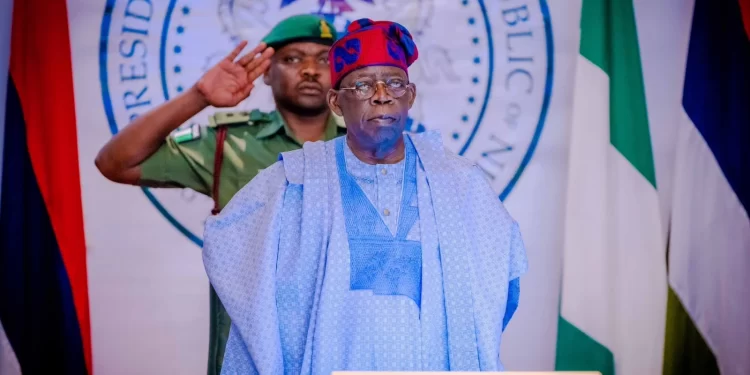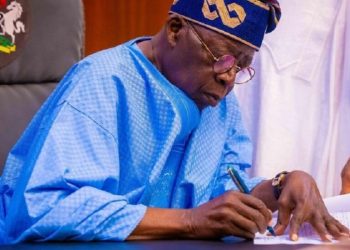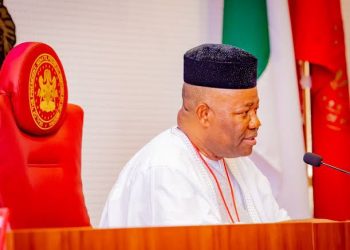President Bola Tinubu on Monday has announced the scrapping and merging of government agencies to cut the cost of governance.
DAILY GIST reports that this is line with the implementation of Stephen Oronsaye report.
In the report, Oronsaye had called for a leaner government by merging some agencies and scrapping some others.
The president’s decision was announced by a presidential spokesperson, Bayo Onanuga, in a statement on X.
He said: “Twelve years after the Steve Oronsaye panel submitted its report on restructuring and rationalizing Federal government parastatals and agencies and a white paper issued two years after, President Tinubu and the Federal Executive Council today decided to implement the report,”
“Many agencies will be scrapped and many others will be merged, to pave way to a leaner government,” he added
The Minister of Information and National Orientation, Mohammed Idris also announced the development Reporters at State House after Monday’s Federal Executive Council meeting
He said: “So in a very bold move today, this administration, under the leadership of President Bola Ahmed Tinubu, consistent again with his courage to take very far-reaching decisions in the interest of Nigeria, has taken a decision to implement the so-called Oronsaye Report.
“Now, what that means is that a number of agencies, commissions, and some departments have actually been scrapped. Some have been modified, and marked while others have been subsumed. Others, of course, have also been moved from some ministries to others where the government feels they will operate better.”
Consequently, the President constituted a committee to implement the mergers, scrapping and relocations within 12 weeks, said Tinubu’s Special Adviser on Policy Coordination, Mrs Hadiza Bala-Usman.
The 800-page report recommended that 263 of the statutory agencies be slashed to 161; 38 agencies be scrapped; 52 be merged and 14 be reverted to departments in various ministries.
Submitted in 2012, the Oronsaye report on public sector reforms revealed that there are 541 — statutory and non-statutory —Federal Government parastatals, commissions, and agencies.
The then President Goodluck Jonathan had set up the Presidential Committee on Restructuring and Rationalisation of Federal Government Parastatals, Commissions and Agencies, under the leadership of former Head of Civil Service, Stephen Oronsaye.
The report also recommends that the law establishing the National Salaries and Wages Commission be repealed and its functions taken over by the Revenue Mobilisation and Fiscal Responsibility Commission.
It advised the FG to merge the nation’s top three anti-corruption agencies—the Economic and Financial Crimes Commission, the Independent Corrupt Practices and other Related Offences Commission and the Code of Conduct Bureau.
Oronsaye had a private sector background, from where he joined the civil service at a very high level and rose rapidly to become the Head of the Civil Service of the Federation
His choice was considered apt with the belief that having come from an original private sector, he would look at ways of cutting the cost of governing by eliminating wastage through duplicated functions across several government MDAs.
The President noted that the action would not result in the loss of jobs by civil servants and said that the initiative is in accordance to ensure the reduction in the cost of governance.
Highlights of the Oronsaye Report
Oronsaye Committee had far-reaching recommendations on MDAs that should be abolished, scrapped, those to be merged and those to become self-funding, thereby freeing funds for the much-needed capital projects across the country.
– 929 MDAs currently in the Federal Government budgeting structure
– The report identified 541 Parastatals, Commissions, and FG Agencies.
– Recommends 38 Federal Agencies to be abolished – Public Complaints Commission, National Poverty Eradication Programme, Utilities Charges Commission, National Agency for the Control of HIV/AIDS, National Intelligence Committee, etc.
– 14 agencies to be fused into ministries where they were created e.g Debt Management Office to the Federal Ministry of Finance
– Public Health Department back to the Federal Ministry of Health
– National Information Technology Development Agency to be fused into the Ministry of Communication Technology
– Reduction of statutory agencies from 263 to 161
– 52 institutions to be merged: NTA, FRCN & VON into the Federal Broadcasting Corporation of Nigeria (FBCN)
– NCC & NBC into Communication Regulatory Authority of Nigeria (CRAN);
– CCB, EFCC & ICPC to be merged into the Anti-Corruption Commission.
– Another key recommendation of the committee was to discontinue government funding of professional bodies and councils. Consequently, there is a need to amend the Professional Bodies (Special Provisions) Act, of 1972 which mandates the government to provide financial support of various kinds to such bodies.
– They include the Teachers Registration Council of Nigeria (TRCN); Computer Professionals Council of Nigeria (CPRCN); Advertising Practitioners Council of Nigeria (APCON); Nigeria Press Council; Architects Registration Council; Council for Registered Engineers of Nigeria (COREN); Estate Surveyors’ Registration Board (ESRB); Town Planners Council (TPC); Nigerian Builders Council (NBC; Quantity Surveyors’ Registration Board of Nigeria (QSRB); Nigerian Builders Council (NBC); and Council of Nigerian Mining Engineers and Geoscientists (COMEG).
Institute for Peace and Conflict Resolution to be scrapped and its functions to be transferred to the Department of Strategic Studies in the Nigerian Institute for International Affairs (NIIA).
The committee recommended that the Petroleum Products Pricing Regulatory Authority (PPPRA) and Petroleum Equalisation Fund be merged with Petroleum Equalisation Fund (PEF). The government was undecided on this recommendation.
– Based on the White Paper, the Fiscal Responsibility Commission (FRC) would be abolished and its enabling law repealed as its functions are being performed by the Revenue Mobilisation Allocation and Fiscal Commission. A similar fate awaits the Salaries and Wages Income Commission.
– The trio of the Nigerian Airspace Management Agency (NAMA), Nigerian Civil Aviation Authority (NCAA) and the Nigerian Metrological Agency (NIMET) were recommended to be merged into a new body to be known as the Federal Civil Aviation Authority (FCAA) and their respective enabling laws amended accordingly to reflect the merger.
– Nigerian Investment Promotion Council (NIPC), the Committee recommended that it be merged with the Nigerian Export Promotion Council (NEPC) to synergize for management and utilization of resources.
– The Committee recommended that the enabling law of the National Commission for Nomadic Education be repealed and the Commission’s activities taken over by the Universal Basic Education Commission.
– National Oil Spill Detection and Response Agency (NOSDRA) and National Environmental Standards and Regulations Enforcement Agency (NESREA) and their function performed in the Ministry of Environment.
– The recommendation that the National Council of Arts and Culture (NCAC) be merged with the National Troupe and the National Theatre into one agency was accepted by the government. The merged entity is to be named the National Theatre of Nigeria.
– The committee recommended that the National Hajj Commission of Nigeria (NAHCON) and Nigerian Christian Pilgrims Commission (NCPC) be scraped and government restrict itself to only providing consular service and vaccination of intending pilgrims.
– The Nigerian Communications Commission, the Nigerian Broadcasting Commission and the regulatory functions of the Nigerian Postal Services were recommended by the committee to be merged.









